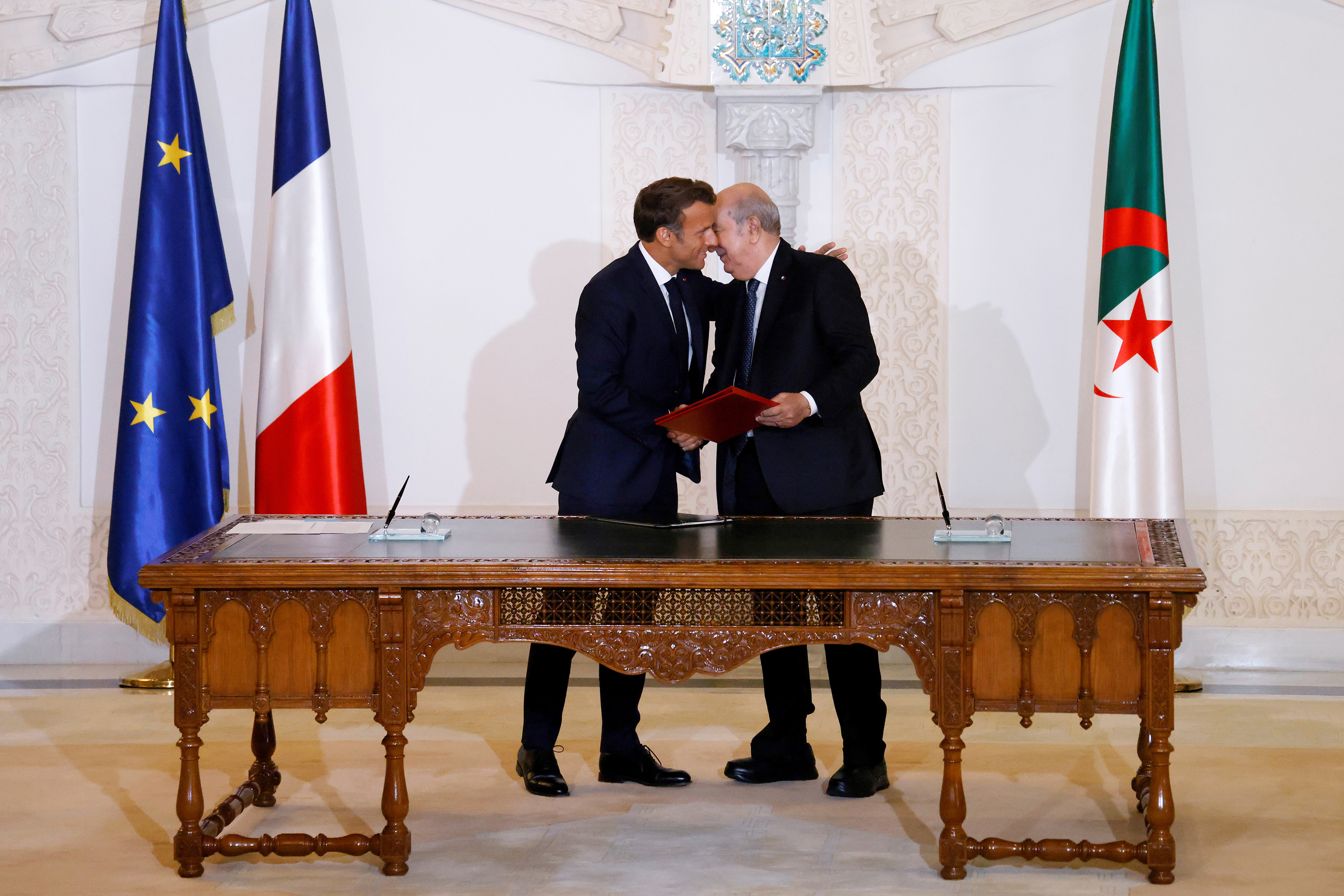Relations between France and Algeria have reached a historic low after the mutual expulsion of 24 diplomats and consular staff since the beginning of this week. Tensions between Paris and the former colony have escalated since July 2024, when French President Emmanuel Macron acknowledged Morocco's autonomy plan for the Western Sahara (contrary to Algeria's support for the independence of a Sahrawi Arab Democratic Republic, a position also shared by the Spanish government).
"The Algerian authorities have chosen escalation," said French Foreign Minister, Jean-Noël Barrot. "If Algeria persists in expelling French officials, we will have no choice but to take similar measures (...) Diplomacy is the only way to reduce tensions," added Barrot, who met with his Moroccan counterpart, Naser Burita, in Paris amid tensions with Algiers. Burita will meet today in Madrid with Minister Albares.
In a strong official statement, the Élysée previously blamed the Algerian authorities for "the brutal degradation of bilateral relations". Apart from the expulsion of diplomatic and consular personnel, France recalled its ambassador to Algiers. The Algerian government had already withdrawn its own ambassador in Paris on July 30, 2024, in response to Macron's support for the "Moroccanization" of the Western Sahara.
Algerian President, Abdelmadjid Tebboune, emphasized to Macron that the Western Sahara conflict is "a decolonization issue for the UN that has not yet been resolved" and reminded him that his country achieved independence from France in 1962 "after a hundred and thirty years of struggle." Tebboune strongly criticized "Morocco's expansionist ambitions" and warned that the neighboring country was "the first to want to undermine Algeria's integrity in 1963, nine months after independence." The Algerian president described the situation in the Maghreb as "a game of chess in which we are forced to respond to acts we consider hostile".
Interestingly, Macron had earned the title of the "most pro-Algerian president of the Fifth Republic" after his "reconciliation" visit in the summer of 2022, full of symbolic gestures of friendship with Tebboune to leave behind "controversies and misunderstandings." The two presidents signed the so-called Algiers Declaration to commemorate the 60 years of independence and committed to maintaining "an irreversible progression dynamic" in the relationship between the two countries.
Two years later, Macron completely changed course not only by supporting Morocco's autonomy plan for the Western Sahara but also with his State visit to Rabat in October 2024 and his personal letter to King Mohamed VI, stating that "the present and future of the Western Sahara are within the framework of Moroccan sovereignty".
"France intends to act consistently with this position, both nationally and internationally," reiterated Macron, dealing a direct blow to the Polisario Front - which claims to be the legitimate representative of the indigenous Sahrawi people - with repercussions throughout the Maghreb region and especially in Algeria, which responded by withdrawing its ambassador in Paris and a progressive deterioration in bilateral relations.
Tensions reached a peak hours after French Foreign Minister Jean-Noël Barrot announced earlier this week that relations between the two countries were "returning to normal" after the tensions of recent weeks, reignited by the case of activist and influencer Amir Boukhors, who obtained political asylum in France in 2016.
Boukhors, with a million followers on TikTok under the alias Amir DZ, is a well-known opponent and critic of President Tebboune. Algerian authorities have issued arrest warrants for fraud and terrorism against him, but France has refused to extradite him.
In April 2024, he was allegedly kidnapped for 24 hours outside his home in Val-de-Marne, south of Paris. The National Anti-Terrorism Prosecutor's Office (PNAT) investigated the incident, and three men were arrested and charged with kidnapping and "arbitrary detention," including an employee of the Algerian consulate in Créteil.
The recent five-year prison sentence for Franco-Algerian writer Boualem Sansal for "undermining the country's integrity" - he once said that France unjustly ceded Moroccan territory to Algeria during the colonial era - has been another thorn in bilateral relations. Macron has repeatedly demanded his release, as Sansal enjoys great popularity and recognition in France.
Another incident that has further exacerbated the strained relations between Paris and Algiers was the knife attack on February 22 in Mulhouse by a 37-year-old Algerian, Brahim Abdessemed, which resulted in the death of a Portuguese citizen and various injuries to five municipal police officers. The French President did not hesitate to label the attack as "an act of Islamic terrorism".
The attacker, with disturbed mental faculties, was flagged as a suspect of terrorist activities. Prime Minister François Bayrou accused Algeria of denying his repatriation up to ten times before committing the attack. The French government has threatened to "reexamine" the 1968 immigration agreement, which grants preferential treatment to Algerians wishing to settle in France.
Meanwhile, the Algerian press points to Interior Minister, Bruno Retailleau, as "the saboteur" and "the main architect" of the serious deterioration in bilateral relations. Retailleau, a potential candidate for the 2027 presidential elections for The Republicans, has pursued a hardline policy against irregular immigration since joining the government and has repeatedly denounced the limited collaboration of Algerian authorities.
Since taking office in September 2024, tensions with Algiers have escalated, causing friction with President Macron himself, who had made a significant effort at the beginning of his second term to heal the wounds of the colonial era.
